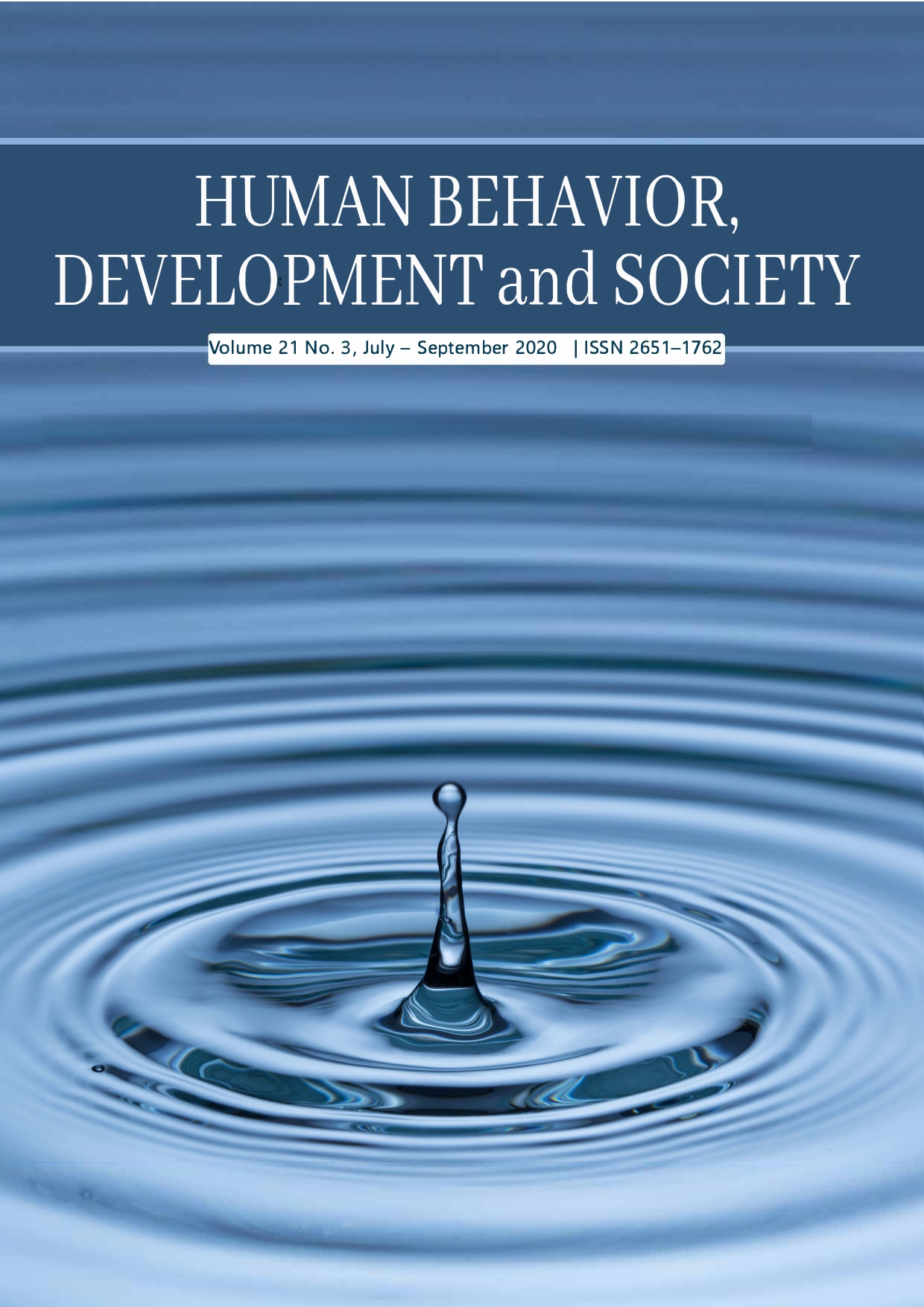Language and What Else? Academic Integration of International Students in a Thai University
Main Article Content
Abstract
Studies have indicated that language plays a central role in international students’ academic integration. With an interest in Thailand, this study aimed to explore factors that affected international students’ academic integration. Initial data were collected from a discussion group attended by Thai and international students. Preliminary analysis of data using Antconc, a concordancing program, revealed the top words used were Thai, students, language, English, international, good, benefit, help, and study. Thereafter, insights from the concordance lines were used to develop guided questions for individual semi-structured interviews. Three international graduate students volunteered for the interview. Thematic analysis revealed that three topics, consisting of internal, external and institutional factors, had a bearing on academic integration. The findings indicated that while language, or other pertinent sociocultural factors, were pivotal for international students’ academic integration, there are also other factors worth considering.
Article Details

This work is licensed under a Creative Commons Attribution-NonCommercial-NoDerivatives 4.0 International License.
Copyright: Asia-Pacific International University reserve exclusive rights to publish, reproduce and distribute the manuscript and all contents therein.
References
Ahmad, S., & Buchanan, F. (2017). Motivation factors in students’ decision to study at international branch campuses in Malaysia. Studies in Higher Education, 42(4), 651–668.
Alemu, A., & Cordier, J. (2017). Factors influencing international student satisfaction in Korean universities. International Journal of Educational Development, 57, 54–64.
Almurideef, R. (2016). The challenges that international students face when integrating into higher education in the United States. https://rdw.rowan.edu/cgi/viewcontent.cgi?article=3338&context=etd
Baker, R., & Siryk, B. (1999). SACQ student adaptation to college questionnaire (2nd ed.). Western Psychological Services.
Boossabong, P. (2018). Neoliberalizing higher education in the Global South: lessons learned from policy impacts on educational commercialization in Thailand. Critical Policy Studies, 12(1), 110–115.
Boyatzis, R. (1998). Thematic analysis and code development: Transforming qualitative information. Sage Publications.
Brunton, M., & Jeffrey, L. (2014). Identifying factors that influence the learner empowerment of international students. International Journal of Intercultural Relations, 43, 321–334.
Burford, J., Koompraphant, G., & Jirathanapiwat, W. (2018). Being, adjusting and developing satisfaction: A review of ajarn tangchart (non-Thai academics) within the Thai higher education system. Compare: A Journal of Comparative and International Education, 1–20.
Dalib, S., Harun, M., & Yusof, N. (2017). Student intercultural competence in a Malaysian campus: A phenomenological approach. Journal of Multicultural Discourses, 12(1), 42–62.
Ejiofo, L. (2010). The experiences of international students in a predominantly white American university [Master’s thesis, Graduate College, University of Nebraska]. https://digitalcommons.unl.edu/cgi/ viewcontent.cgi?article=1022&context=cehsedaddiss
Eze, S., & Inegbedion, H. (2015). Key factors influencing academic performance of international students’ in UK universities: A preliminary investigation. British Journal of Education, 3(5), 55–68.
Jatuporn, O. (2017). Education for enculturating the “Thainess” ideology: Decolonizing the Siamese colonial discourse in the social studies curriculum. Journal of International Social Studies, 6(2), 130–140.
Kanjananiyot P., & Chaitiamwong C. (2018). The internationalization of Thai higher education over the decades: Formidable challenges remain! In G. Fry (Ed.), Education in Thailand: An old elephant in search of a new mahout (pp. 271–321). Springer.
Lao, R. (2019). The politics, economics and cultural borrowing of Thai higher education reforms. In P. Chachavalpongpun (Ed.), Routledge handbook of contemporary Thailand. Routledge.
Lavankura, P. (2013). Internationalizing higher education in Thailand: Government and university responses. Journal of Studies in International Education, 17(5), 663–676.
Loo, D., Keough, W., Sundaresan, A., & Thomas, D. (2018). Perceptions towards engagement: The case of Thai English majors in an international higher education environment. LEARN Journal, 11(2), 116–133.
Loo, D., Trakulkasemsuk, W., & Jimarkon Zilli, P. (2019). Positioning students in the international intercultural classroom: An exploration of English teachers’ discourse. Journal of Liberal Arts, 19(1), 107–139.
Patton M. (2002). Qualitative research and evaluation method. Sage Publications.
Quality Assurance Agency for Higher Education. (2019). Country report: Thailand. https://www.qaa.ac.uk/docs/ qaa/international/country-report-thailand-2019.pdf?sfvrsn=ab3fc081_6.
Rhein, D. (2016). Westernisation and the Thai higher education system: Past and present. Journal of Educational Administration and History, 48(3), 261–274.
Rhein, D. (2018). African American student sociocultural adjustment to Thai international higher education. Globalisation, Societies and Education, 16(4), 381–394.
Rhein, D., & Jones, W. (2020). The impact of ethnicity on the sociocultural adjustment of international students in Thai higher education. Educational Research for Policy and Practice. https://doi.org/10.1007/s10671-020-09263-9
Rujiprak, V. (2016). Cultural and psychological adjustment of international students in Thailand. International Journal of Behavioral Science, 11(2), 127–142
Rujiprak, V., & Limprasert, S. (2016). International students’ adjustment in Thailand. ABAC Journal, 36(1), 34–46.
Saban, G. (2013). Learning needs in the multicultural classrooms: Implications to equitable teaching. Catalyst, 8(1), 7–24.
Seidlhofer, B. (2005). English as a lingua franca. ELT journal, 59(4), 339–341.
Sung, C. (2020). English as a lingua franca in the international university: Language experiences and perceptions among international students in multilingual Hong Kong. Language, Culture and Curriculum. https://doi.org/10.1080/07908318.2019.1695814
Wilang, J. (2017, June 22–24). Silence of Japanese in a Thai EFL context [Paper presentation]. Proceedings of The International Conference on Doing Research in Applied Linguistics 3 / 19th English in South-East Asia Conference 2017 (DRAL 3/19th ESEA) (pp. 94–104). King Mongkut’s University of Technology, Thonburi, Bangkok, Thailand.
Young, T., Sercombe, P., Sachdev, I., Naeb, R., & Schartner, A. (2013). Success factors for international postgraduate students' adjustment: Exploring the roles of intercultural competence, language proficiency, social contact and social support. European Journal of Higher Education, 3(2), 151–171.


